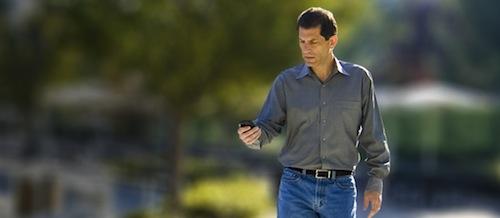
It's no secret that Palm is having trouble staying afloat. The company, which debuted webOS and the Palm Pre at CES in 2009, have suffered from lackluster sales across the board, and have been a primary takeover target for some time. Though he acknowledges that issues exist, CEO Jon Rubinstein continues to forge ahead. In an interview with Fortune, he discusses some of the strategies that the company is undertaking to return to success.
When asked about success in the smartphone marketplace:
"I still believe that there's going to be likely five successful players in this space. It's a huge and rapidly growing market. And I think that having a small share of that market you can have a successful company. We just need to get up to scale, and that's our number one goal. It's not profitability, it's to get to scale. When we get to scale the economics of the business completely change. We went through that same thing at Apple, by the way. I mean, it was a similar situation many, many years ago where you just didn't have the economies of scale. And once we crossed over that Apple became a cash machine."
When asked about partnering with Sprint at launch:
"Hindsight is always 20/20, but you have to understand that we had a long-term relationship with Sprint. Sprint wanted to do an aggressive launch on webOS. They were willing to invest significant marketing dollars. But the quid pro quo for that is that we had to do an exclusive with Sprint. Now, if I sit today and I kind of roll back the clock and go, okay, now if I could have launched in October with Verizon, and done a shorter exclusive with Sprint, and the world would be completely different today, yeah, I mean, that's easy to say. But you don't know these things at the time. And Sprint has been a really good partner for Palm. They continue to be a really good partner for Palm."
Check out the full interview here. You'll hear different things depending on who you talk to; some believe the blame falls on Sprint, while others chalk it up to Verizon, while others blame Palm across the board.
My take on the matter? I chalk it up to the following: (1) A terrible marketing campaign throughout the life cycle of the webOS devices, (2) poor marketing on Verizon's side (when compared to other devices like the DROID) until recently, (3) the lack of a touchscreen slate-like device (think HD2 here) to compliment the portfolio, and (4) a lackluster App Catalog. If Palm can fix those things (and they appear to be doing so as of late), then I could see them being successful long-term.
What do you think? Will Palm be successful in the long-term, or will they be purchased by another company?
Via Fortune